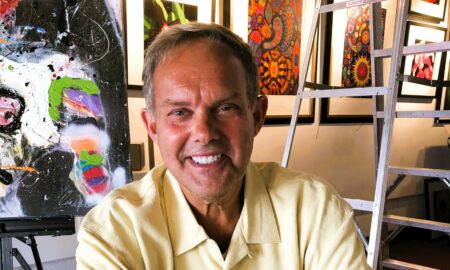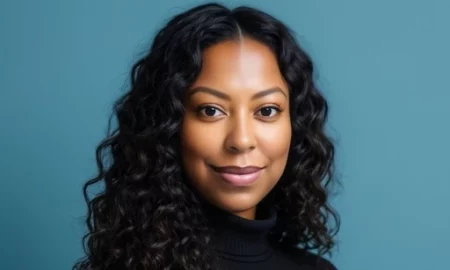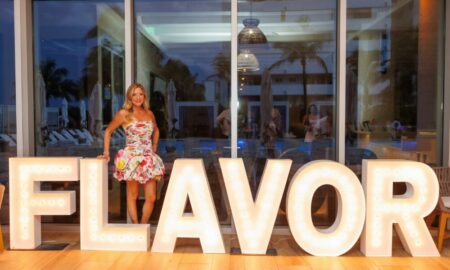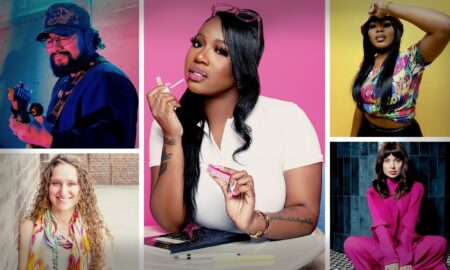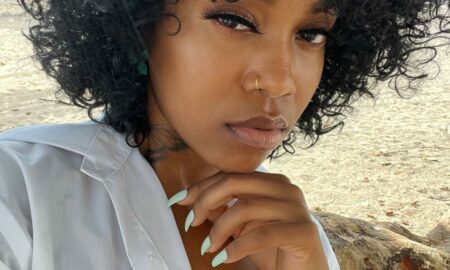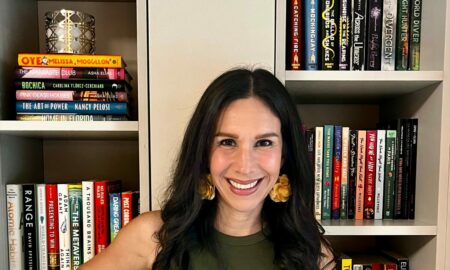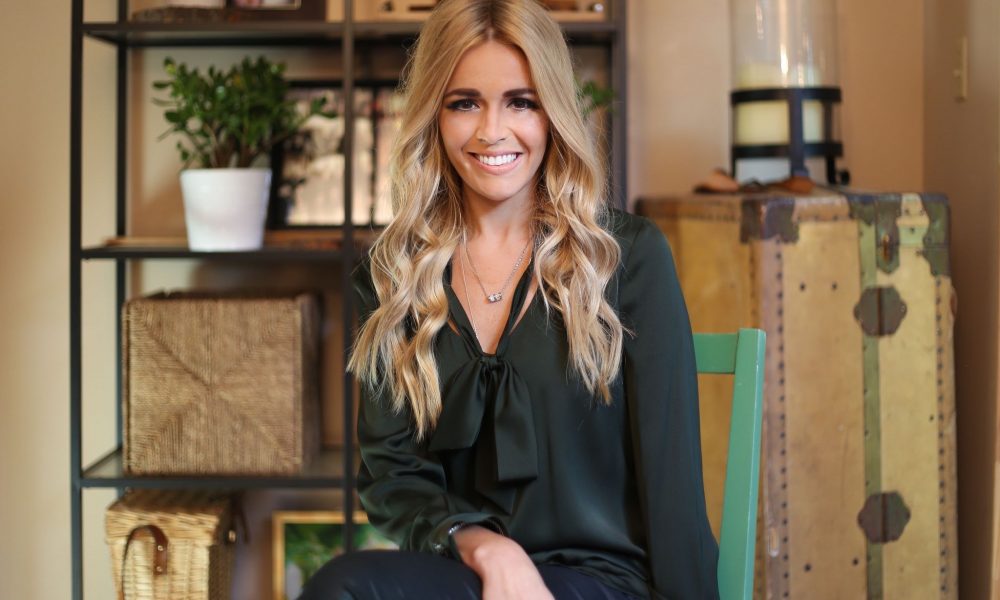

Today we’d like to introduce you to Lindsey Muller.
Lindsey, please share your story with us. How did you get to where you are today?
South Florida weather can bring about lots of humidity and rain which means potential for a lot of really bad hair days! Unlike most, I now love the experience of getting stuck in the rain and getting my long hair drenched because, for over 12 years, I was missing the majority of my hair.
I grew up a perfectionist. My appearance was extremely important to me so it was ironic that I went on to take away one big piece of me (my looks) that held so much value. Starting in preschool, I began picking my arms and legs (known as Dermatillomania) to the point that I had scabs all over and was embarrassed to leave the house wearing shorts or a short-sleeved shirt. In elementary school, picking moved into picking plus nail-biting. My fingers hurt and my nails were nonexistent. My beautiful hands looked red, irritated, and bloody. Then, in 7th grade, I found hair pulling (known as Trichotillomania). What started out as a few single strands pulled daily turned into hundreds of hairs pulled from my head. Trichotillomania was present in my life every day from 7th grade all the way into my first Master’s degree program. In total it was 20 consecutive years that I struggled with this classification of mental health disorders known as body-focused repetitive behaviors (BFRBs). At its worst, I was missing 75% of my hair and at the time, no one knew except my immediate family. I wanted to maintain my “perfect image”. I spent as much time pulling as I did working hard to incorporate thousand dollar hairpieces and extensions to cover the various bald spot on my head (some the diameter of a grapefruit!).
These days there are so many options for changes to hairstyles and looks. Social media and celebrities have made extensions, wig, hairpieces, and shaved heads more socially acceptable. However, there is a huge difference when you have a full head of hair and voluntarily choose to change your appearance or hairstyle as compared to my experience with not having a full head of hair, feeling so out of control with pulling, not understanding why I did what I did, and involuntarily wearing my hair a certain way because any other style would expose lots of scalp and baldness.
While appearance is not the most important part of who we are, and while my appearance is no longer as important to me, this whole experience still took its toll on me at the time, especially as a female surrounded by beautiful people, and especially with the societal emphasis and value toward appearance through social media, magazines, fashion and beauty industry, etc.
Nonetheless, I do believe that there is something positive to come from each moment of weakness or difficulty in life. It was in my first Master’s program that I finally made the choice to change my lifestyle to support mental wellness and mind-body health. I stopped pulling in 2008 due to the recognition of how pulling made everything more difficult, a recognition that the negatives outweighed the positives of pulling, feeling guilty that I was still struggling amidst a psychology graduate program, and recognition that I had a choice to say, “Screw this. I am done!” I took back control. From there, I went on to a doctoral program and eventually moved to Los Angeles where I resided for six years and worked in a group practice. In 2014, just before my 30th birthday, while living in West Hollywood, LA, I sat down and wrote my entire story in less than a month’s time.
While I never envisioned becoming a published author, the idea to write came to me and instead of fighting it or overthinking, I succumbed and leaned into it. The words flowed so freely that I knew I was meant to eventually expose my truth to everyone in my life that only knew me in “perfect” light. When my memoir, Life is Trichy, was published and released to the public in November 2014, everyone found out about the real journey I had taken to get to where I am today. The memoir provided a platform for mental health awareness and advocacy of BFRBs as well as allowed people from all over the world struggling with a BFRB to find me and inquire about support and treatment. More powerfully, because the majority of those who struggle with a BFRB do so in isolation and silence (due to guilt and shame), there was a moving, riveting, powerful opportunity to share the message, “You are not alone”. That sense of universality can move mountains as I have seen first hand.
Has it been a smooth road?
As one with bald patches and a desire to appear “perfect”, this presented many challenges and pressures. I avoided sleepover with friends, going underwater in a pool, riding in a car with the top down, and walking around with wet hair. Stepping into a salon was nerve-wracking and avoided altogether. I successfully had many incredible relationships over the years but there was always the challenge of how long to wait to tell a boyfriend about my hair, that I didn’t want my head to be touched, and that I wore a hairpiece (“This is not my own hair!”). There was also the daily struggle with self-acceptance; how could I possibly accept myself when I look this way and do this to myself?
It was in undergraduate school that I found my way to the field of psychology via trials with pre-med, business, and broadcast journalism majors first. At Auburn University, during my psychology undergrad program, my pulling was at an all-time high. This was due to spending a lot of time studying by myself and living by myself. I never pulled in front of or around others so the more time I was alone, the more opportunity to engage in hair-pulling.
After graduating from Auburn University, I went right into my first Master’s degree program in Clinical/Counseling Psychology in Georgia where I faced another large obstacle. I knew I wanted to specialize in treating BFRBs but did not consider that the day would eventually come, as it did in my Master’s program, that I would have to work with patients struggling with the same disorder with which I struggled. It was at that moment I felt like a liar to myself and everyone else around me… a fraud and someone who had no right supporting others in mental wellness when I could not support myself.
When it comes to obstacles, there are two types of people; neither type is good or bad. One type of person sees the obstacle and waits for someone to come along to save or help. The other type of person sees the obstacle and decides to be her own superhero, rescue herself, and push forward with a fight. I have been BFRB-free since 2008.
We’d love to hear more about your work.
After six years in Los Angeles and working in group practice, inpatient treatment, hospitals, schools, and clinics, I relocated back to South Florida (where I am originally from) and opened L. Muller Therapy, a private practice in Boca Raton specializing in the treatment of skin picking, nail, biting, hair pulling, perfectionism, self-confidence, and anxiety. While an addiction counselor does not have to experience addiction to be competent and effective, and while a BFRB therapist does not have to experience Trichotillomania to successfully treat clients, I choose to share aspects of my own experiences as part of building professional rapport and trust, without assuming my experience is like my client’s experience. At L. Muller Therapy, I support a limited number of adolescent and adult clients at a time so I can attend each session as the best, most present, energized, and compassionate version of myself. Human to human interaction is becoming less and less these days, so I make sure to welcome my clients each day with a warm, empathic, quality interaction, ready to collaborate and work to make us each the best versions of ourselves.
Is our city a good place to do what you do?
Having lived all throughout the United States, there is no place like Miami except Miami. Our city is rich in culture, bursting with one-of-a-kind art, full of enticing experiences, and home to some of the best beaches and most flavorful dishes. After most recently moving from Los Angeles to the Miami area, I noticed that there are subtle similarities such as diversity, coastal living, and a laid back, vacation-like vibe. However, Miami is a place where the water weaves in and out among the city, where the skyline is jaw-dropping, and where people are continually looking for opportunities to mingle, better themselves, and have a good time. What truly sets Miami apart, and what I like best about our city, is the PASSION. The people here are passionate about healthy living and making the most of each day. We can walk to work and run on the beach. There is a passion for music, nightlife, fashion, and art. With passion comes emotion, and I experience all kinds of positive emotions every day I live and work here. Miami is a great place for any current or up-and-coming businesses within the mind-body space. The Miami culture takes full advantage of and keeps an open mind to, new forms of exercise, mediation, bodywork, and brain health. The work done inside the therapy space would potentially not be as impactful as it is without the outside support from the Miami lifestyle, which is very much about healthy living.
Contact Info:
- Address: 2295 NW Corporate Blvd
Ste 136
Boca Raton, FL 33431 - Website: www.lmullertherapy.com
- Phone: 561-299-4911
- Email: lindsey@lmullertherapy.com
- Instagram: @lmullertherapy
- Facebook: https://www.facebook.com/Life-Is-Trichy-613770432064620/
- Yelp: https://www.yelp.com/biz/lindsey-muller-therapy-boca-raton
- Other: https://www.amazon.com/Life-Trichy-Memoir-therapist-disorder/dp/0692322442




 Image Credit:
Image Credit:
Blake Pruitt, Sam Schneider
Suggest a story: VoyageMIA is built on recommendations from the community; it’s how we uncover hidden gems, so if you or someone you know deserves recognition please let us know here.










